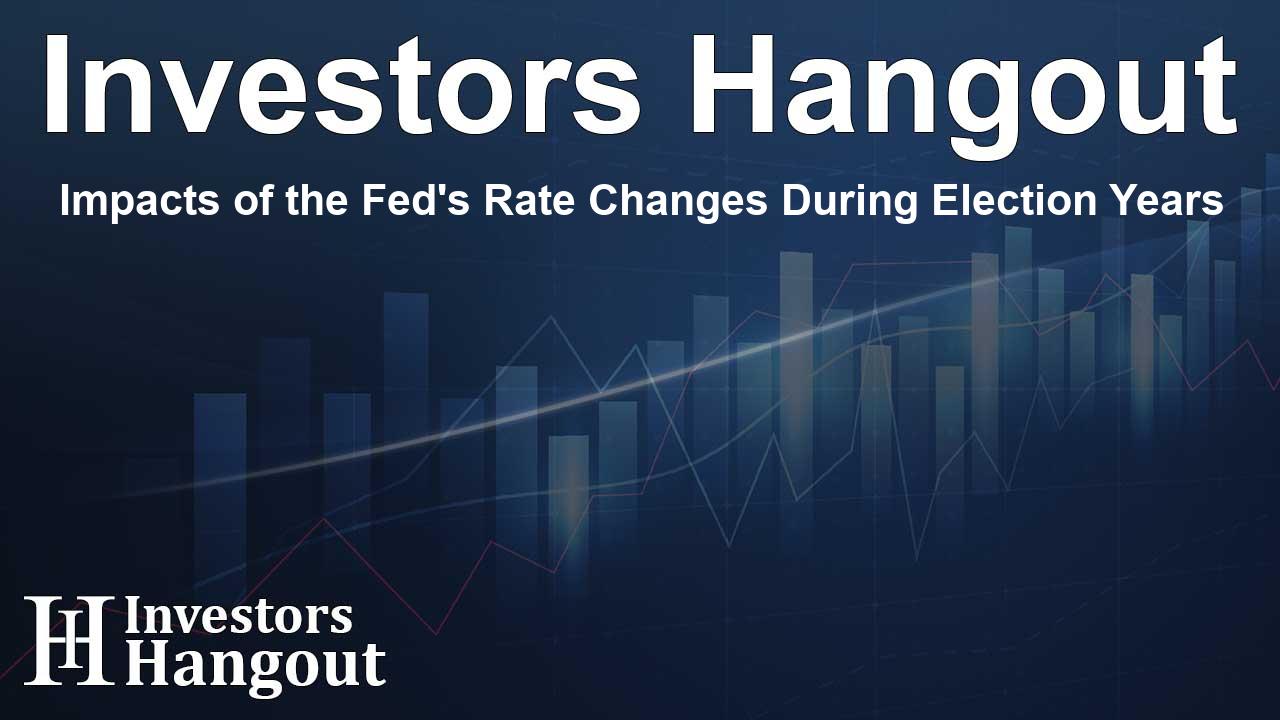Impacts of the Fed's Rate Changes During Election Years

Understanding the Federal Reserve's Role in Elections
The Federal Reserve's recent decision to lower interest rates by half a percentage point has sparked discussions about the timing and implications of such actions, particularly as they relate to U.S. presidential elections. This move is notable as it represents one of the few times in nearly fifty years the Fed has initiated an easing cycle so close to an election.
The Historical Context of Rate Changes
Throughout history, the Fed has been known for adjusting interest rates, particularly during election years. The frequency of these changes indicates that monetary policy is often not static. In fact, initiating a new wave of rate cuts just a few months before Election Day isn't a common occurrence; it has only happened a couple of times prior in the 1970s and 1980s.
The Independence of the Federal Reserve
The Fed operates as an independent entity, with Fed Chair Jerome Powell emphasizing that political factors do not influence their decisions regarding interest rates. His reassurance suggests that the primary focus remains on economic data and forecasts, rather than external political pressures.
Voices from the Political Arena
Despite these assertions of independence, various political figures express skepticism. For example, former President Donald Trump has suggested that the Fed may take actions that benefit the Democratic party during election seasons. In contrast, Vice President Kamala Harris has expressed her intent to respect the Fed's autonomy.
The Trend of Rate Adjustments in Election Years
How Rate Changes Affect Election Outcomes
Challengers to an incumbent president typically find success during years when rates are declining. Conversely, in years where rates increased, the incumbent party tends to retain power. This is evidenced by the data showing that four out of five incumbents won during times of rising rates, except for the year 2000, which saw a significant rate increase while the election favored the Republicans.
New Cutting Cycles and Their Significance
While rate adjustments are common, embarking on brand new cutting cycles during election years is a different story. Such actions are much less frequent, yet they hold considerable weight in public perception and political strategy. For instance, during the onset of the COVID-19 pandemic, the Fed enacted significant rate cuts that coincided with the 2020 election.
Recent Patterns and Predictions
The Fed's recent actions lead to reflections on historical precedents, including the 1976 election when a significant rate cut occurred just weeks before ballots were cast. The outcome of that election marked another historical moment in the interplay between monetary policy and electoral results.
Frequently Asked Questions
How often does the Fed change rates during election years?
The Federal Reserve has changed interest rates in nearly every presidential election year since 1972, indicating that monetary policy is dynamic and closely monitored during election cycles.
Do political considerations influence the Fed's decisions?
While the Fed maintains its independence from political pressures, some politicians express doubts about the apolitical nature of these decisions, especially when they happen close to elections.
What historical trend is evident regarding rate changes and election outcomes?
Historically, incumbents tend to win reelection when rates are rising, while challengers have been victorious during years of falling rates, shaping the political landscape.
What was the most significant rate cut prior to an election?
The most significant cut leading to an election occurred in 2008 when rates fell drastically due to the financial crisis, influencing the outcome in favor of the Democratic party.
How does the Fed's independence impact its credibility?
The Fed's independence is crucial for maintaining credibility in its monetary policy decisions, ensuring that actions are based on economic conditions rather than political motivations.
About The Author
Contact Addison Perry privately here. Or send an email with ATTN: Addison Perry as the subject to contact@investorshangout.com.
About Investors Hangout
Investors Hangout is a leading online stock forum for financial discussion and learning, offering a wide range of free tools and resources. It draws in traders of all levels, who exchange market knowledge, investigate trading tactics, and keep an eye on industry developments in real time. Featuring financial articles, stock message boards, quotes, charts, company profiles, and live news updates. Through cooperative learning and a wealth of informational resources, it helps users from novices creating their first portfolios to experts honing their techniques. Join Investors Hangout today: https://investorshangout.com/
The content of this article is based on factual, publicly available information and does not represent legal, financial, or investment advice. Investors Hangout does not offer financial advice, and the author is not a licensed financial advisor. Consult a qualified advisor before making any financial or investment decisions based on this article. This article should not be considered advice to purchase, sell, or hold any securities or other investments. If any of the material provided here is inaccurate, please contact us for corrections.
